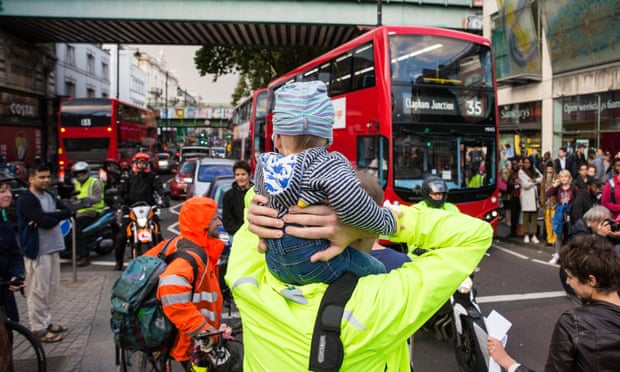The analysis by King’s College London is the first to examine a wide range of health conditions linked to living near areas of air pollution from traffic. It compared 13 different health conditions, including heart disease, stroke and bronchitis, across 13 cities in the UK and Poland.
The study reveals that living within 50 metres of a busy road may increase the risk of lung cancer by 10%, and stunt lung growth in children by 3–14%.
Examining different cities in the UK, the research suggests levels of roadside air pollution restrict lung growth in children by approximately 14% in Oxford, 13% in London, 8% in Birmingham, 5% in Bristol, 5% in Liverpool, 3% in Nottingham and 4% in Southampton.
One third of Londoners – about three million people – are estimated to live near a busy road.
The coalition of 15 health and environment NGOs who released the report, including ClientEarth and the British Lung Foundation, are calling for legal levels of particulate pollution to be reduced to World Health Organization limits by 2030.
The WHO limit is that small particles known as PM2.5 should not exceed an annual mean of 10μg/m3 (10 micrograms per cubic metre), or a 24-hour mean of 25 μg/m3.
Existing UK legal limits for PM2.5 are more than double the WHO limit. No political party has committed to bringing the limit to within WHO guidelines by 2030.
Lucy Harbor, a mother from north London who founded Clean Air 4 Schools, said the findings were deeply worrying.
“Me and my family live by the A10 and my kids go to a school on a busy main road. Sadly, this report confirms many of my worst fears – that where we live and go to school could seriously be affecting our health.
“We are these statistics – one of my children was hospitalised with pneumonia and has had asthma. That my children’s lung growth could be stunted by 12.5% makes me seriously question whether enough is being done to urgently bring pollution levels down on main roads in London.”
The research suggests that reducing air pollution by one fifth could see the lung cancer cases go down by 7.6% in London, 6.4% in Birmingham, 5.9% in Bristol, 5.3% in Liverpool, 5.6% in Manchester, 6.7% in Nottingham, 6% in Oxford and 5.9% in Southampton.
Research shows living near a busy road can trigger bronchitic symptoms among children with asthma. The study – which examines symptoms that affect a larger number of people – suggests 3,865 fewer children could be affected in London if pollution was reduced by one fifth, with other cities also seeing significant reductions.
Dr Heather Walton, senior lecturer in environmental health at King’s College London, said it was the first time that health impact calculations for such a wide range of health conditions and cities had been included in one report.
“Previous calculations have concentrated on deaths, life expectancy and broad types of hospital admissions. Our report includes symptoms that affect a larger number of people such as chest infections [acute bronchitis] in children and effects on specific groups of people such as asthmatics.”
Andrea Lee, clean air campaigns and policy manager at ClientEarth, which has successfully taken the government to court over illegal levels of nitrogen dioxide pollution from traffic, said: “Toxic air puts an unfair burden on people’s lives. The good news is that solutions are available. The UK’s first clean air zone in London is already having an impact. But much more needs to be done to help people across the country move to cleaner forms of transport.”
More about: #health
















































